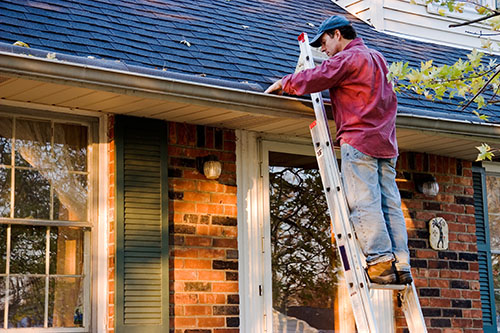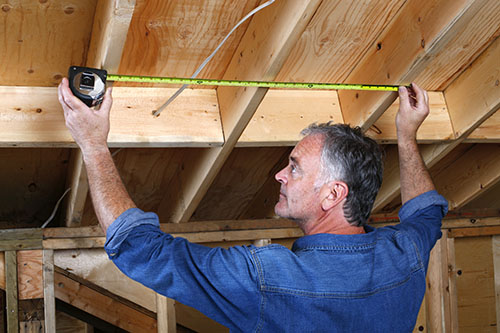 If you’re looking for a home that’s in a family-friendly neighborhood, there are a few key things you can look for to make sure your new house is a good fit for both you and your children.
If you’re looking for a home that’s in a family-friendly neighborhood, there are a few key things you can look for to make sure your new house is a good fit for both you and your children.
Quality Public or Private Schools
Are there good public schools nearby? If so, do they span from kindergarten all the way to high school? Finding a home in an area with a great elementary school can be a good fit for several years, but if you’re looking for a home that will be convenient in the long-term it’s important to consider your proximity to both primary and secondary schools.
Parks And Other Relaxing Green Spaces
If you’re looking for a family-friendly neighborhood with free sources of entertainment, make sure that there is at least one park or playground nearby. Playgrounds can provide endless amusement for younger children, whereas a park can offer entertainment for kids of any age. Either way, have a park in the area will help boost the quality of your family’s leisure time.
Recreation Facilities And Other Amenities
For even more great leisure opportunities, check out the local recreational facilities. Public swimming pools, community centers, and recreation centers often offer a wide variety extracurricular activities and programs. These can be a great support when it comes to supplementing what your kids’ education with skills that are learned outside of school, and can encourage a healthy lifestyle as well.
Shopping & Services
If you’re looking for a convenient lifestyle, perhaps one of the most important factors to consider is what stores and businesses are located nearby. Is there a grocery store, doctor’s office, cafe, drug store, gas station, or other essential businesses nearby? Make your life easy! If there are stores nearby that meet your needs it will help boost your neighborhood satisfaction for years to come.
A Short (Or At Least Tolerable) Commute
If you commute to work, it is also valuable to consider how long of a drive it is between your place of employment and potential new home. The less time you have to spend on the road, the more time you’ll have with your family.
Neighbors You Will Enjoy Associating With
Finally, it is important to consider who else lives in the area. Is the neighborhood you’re looking at full of other young families? Are there other children for your kids to play with? Does it seem like a close-knit community?
Although you can’t predict how relationships will blossom in a new home, you’ll set yourself up for success if there are people with similar interests and lifestyles as you. If the people seem great, chances are the neighborhood is, too!
Ready to find the perfect home to raise your family in? Contact your trusted real estate professional today.
 With real estate becoming more affordable, new homes being sold in a range of prices and the cost of rent going up, there has never been a better time to consider buying a starter home.
With real estate becoming more affordable, new homes being sold in a range of prices and the cost of rent going up, there has never been a better time to consider buying a starter home. Many people dream of buying their ideal retirement home after their career has come to a conclusion – with all that extra free time it seems like it’d be the most logical time to shop around.
Many people dream of buying their ideal retirement home after their career has come to a conclusion – with all that extra free time it seems like it’d be the most logical time to shop around. New homes can be scary. But when you take the time to think about it, and plan ahead, maintaining a home is easier than you think a manageable mix of experience and common sense. Here are five skills that will help maintain your new home for years to come.
New homes can be scary. But when you take the time to think about it, and plan ahead, maintaining a home is easier than you think a manageable mix of experience and common sense. Here are five skills that will help maintain your new home for years to come. Purchasing a plot of land can be one of the best investments to make. A landowner has great (but not unlimited) freedom in how to develop their plot, and land never expires so its potential is essentially infinite. That said, buying undeveloped or vacant land can be risky business, so read on to find tips on purchasing a plot.
Purchasing a plot of land can be one of the best investments to make. A landowner has great (but not unlimited) freedom in how to develop their plot, and land never expires so its potential is essentially infinite. That said, buying undeveloped or vacant land can be risky business, so read on to find tips on purchasing a plot. In a hot market it’s easy to be blinded by the competition and succumb to the pressure to make an offer on a home before you’ve adequately assessed it. If you’re looking to buy a home this summer, use these four tips to uncover hidden flaws before you put your offer in.
In a hot market it’s easy to be blinded by the competition and succumb to the pressure to make an offer on a home before you’ve adequately assessed it. If you’re looking to buy a home this summer, use these four tips to uncover hidden flaws before you put your offer in.